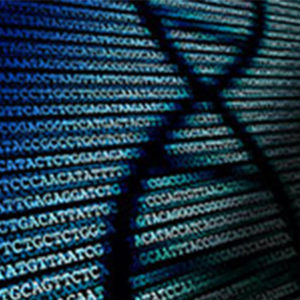NGS Analysis for Monogenic Disease in African Populations
12–13 December 2022
Rabat, Marocco
Learn how to apply next generation sequencing (NGS) technologies for analysing monogenic disease in African populations.
Summary
In collaboration with the 14th Conference of the African Society of Human Genetics (AfSHG) and the Moroccan Society of Human Genetics (SM2GH), in Rabat, Morocco, we are delighted to offer this free-to-attend, 2-day workshop on the application of next generation sequencing (NGS) technologies for analysing monogenic disease in African populations.
Use of NGS technologies encompassing gene panels, whole exome sequencing (WES) and whole genome sequencing (WGS) in human genomics are increasingly becoming accessible for research and clinical diagnostics in Africa. This workshop aims to provide an overview of NGS genomic study approaches
- analysis pipelines for the discovery
- validation of rare monogenic disease-causing variants, with a specific focus on special considerations for African case-studies
Participants will be introduced to the key electronic resources that can be harnessed to assess the potential pathogenicity of variants. Case studies will be incorporated to demonstrate key steps in research and potential utility in diagnostics with a focus on monogenic diseases.
Conference Venue
Centre de Conférences de la Fondation Mohammed VI
Avenue Allal Fassi, Rabat, Morocco
Organisers and Funding
- Wellcome Connecting Science (WCS)
- Moroccan Society of Human Genetics
- African Society of Human Genetics (AfSHG)
Target audience
The workshop is aimed at researchers and clinicians/healthcare professionals in the field of human genomics who use or plan to use NGS approaches in their research or clinical work.
Programme
Programme
The programme will include lectures, discussions and hands-on exercises* covering the following topics:
- Modes of inheritance
- African population reference datasets
- Experimental design for NGS studies in monogenic diseases
- Workflow QC
- Variant analysis pipeline
- Variant annotation
- Variant filtering
- Interpretation of genetic variants
- Ethical issues of incidental findings and variants of unknown significance
*Please note: Participants must bring a wireless-enabled laptop computer to participate in the hands-on exercises.
Learning outcomes
By the end of the workshop participants should be able to:
- Formulate appropriate NGS study designs for rare monogenic disorders
- Evaluate the content, data, annotations and use of databases and web-based genetic resources and tools
- Appreciate basic principles and concepts of analysis and interpretation of NGS data
- Be aware of appropriate methods, tools and resources in analysis and interpretation of NGS data with respect to rare monogenic diseases.
Prerequisites
The workshop is open to researchers and clinicians/healthcare professionals based in Africa, with background knowledge in genetics and who aim to apply NGS analysis methods in their research or clinical work.
Preference will be given to conference participants. The hands-on practical sessions will use web-based resources and participants will not require knowledge of UNIX or command-line applications. The workshop will be taught in English.
If you have any problems with the online application process, please contact us.
NOTE: Applications must be supported by a recommendation from a scientific or clinical sponsor (e.g. supervisor, line manager, or head of department). A request for a supporting statement will be sent to your nominated sponsor automatically during the application process. Applicants must ensure that their sponsor provides this supporting statement by the application deadline. Applications without a supporting statement cannot be considered.
*Please note: The practical sessions will be taught exclusively through Unix/Linux. Therefore, participants are required to have some familiarity with the Linux operating system. This will be essential for participants to fully benefit from the course. There are numerous online introductory tutorials to the UNIX/Linux operating system and command line, including:
Instructors and speakers
Instructors
Samuel Adadey – University of Cape Town (South Africa)
Bana Alamad – University of Oxford (UK)
Gerrit Botha – University of Cape Town (South Africa)
Hicham Charoute – Intitut Pasteur (Morocco)
Segun Fatumo – LSHTM (Uganda)
Chrsitian Gilissen – Radboud University (Netherlands)
Youssef Idaghdour – NYU (Abu Dhabi)
Valentina Ngo Bitoungui – Dschang University (Cameroon)
Ben Moore – EMBL-EBI (UK)
Maria Mudau – University of the Witwatersrand (South Africa)
Nchangwi Syntia – SADaCC (South Africa)
Catherine Tcheandjieu – UCSF (USA)
Ambroise Wonkam – UCT (South Africa)
Mohamed Zahir Alimohamed – Hindu Mandal Hospital (Tanzania)
Organisers
Alice Matimba – Head of Courses & Global Training
Vicky Nembaware – SADaCC Coordinator
Khalid Sadki – President Founder of SM2GH
Isabela Malta – Global Training Assistant Manager
Martin Aslett – Information Technology Manager
Karon Chappell – Courses & Events Organiser
How to apply
Prerequisites
The workshop is open to researchers and clinicians/healthcare professionals based in Africa, with background knowledge in genetics and who aim to apply NGS analysis methods in their research or clinical work.
Preference will be given to conference participants. The hands-on practical sessions will use web-based resources and participants will not require knowledge of UNIX or command-line applications. The workshop will be taught in English.
If you have any problems with the online application process, please contact us.
NOTE: Applications must be supported by a recommendation from a scientific or clinical sponsor (e.g. supervisor, line manager, or head of department). A request for a supporting statement will be sent to your nominated sponsor automatically during the application process. Applicants must ensure that their sponsor provides this supporting statement by the application deadline. Applications without a supporting statement cannot be considered.
How to Apply
Please click the Apply button above to begin the online application process. Places are limited and will be awarded on merit. If you have any problems with the online application process, please contact us.
Cost
Cost
The workshop is subsidised by Wellcome Connecting Science and is free to attend for non-commercial applicants. Please contact us for the commercial fee.
Bursaries
A limited number of bursaries are available for each course. These are awarded on merit to cover accommodation and sustenance.
Accommodation services phishing scam – please be vigilant. More information.

